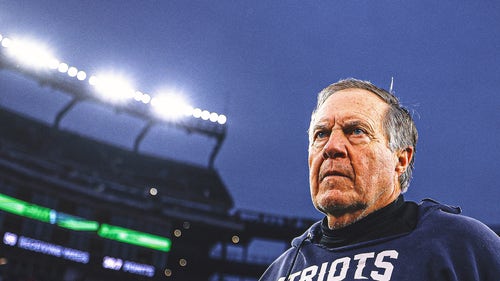
Pryor's NFL uncertainty in part his doing
Terrelle Pryor is twisting in the wind.
Too bad.
The first entity that Pryor should blame for his nebulous football future isn’t the NFL. In fact, the league ranks third behind two people whom Pryor knows quite well.
The first is himself. The second? Jim Tressel.
Let’s start with Pryor. He was the one who knowingly violated NCAA rules while playing quarterback at Ohio State.
Pryor then presumed that he would have automatic entry into the NFL’s supplemental draft when announcing his departure from the university in early June.
Not quite.
Pryor still doesn’t know whether he qualifies. Neither does the league. The supplemental draft scheduled for Wednesday was postponed indefinitely. An NFL spokesman didn’t give FOXSports.com a reason Tuesday for the cancellation, but it’s presumed the league is reviewing a plea from Pryor’s attorney to make him eligible.
The NFL is extremely sensitive about a college player using the supplemental draft to manipulate where he lands, a la Bernie Kosar in 1985. It doesn’t appear that was Pryor’s intention. Unlike Kosar — an elite prospect taken with the No. 1 supplemental pick by Cleveland — Pryor is considered a likely mid-round selection.
The league, though, understandably doesn’t want to risk setting a precedent for future prospects and player agents who are adept at twisting rules beyond their intended purpose.
Pryor must convince the NFL that the reason he turned pro was the imminence of NCAA ineligibility stemming from numerous off-field transgressions. The supplemental draft usually consists of prospects whose college playing status changed after the January entry deadline for the traditional college draft. Examples include players kicked off their college teams, declared academically ineligible or those who graduated and then decided to leave school.
The initial rationale Pryor provided for departing Ohio State in a statement released by his lawyer — that it was “in the best interests of my teammates” because of all the negative attention he was generating — won’t fly with league brass.
The worst-case scenario for Pryor: his chance to enter the NFL won’t come until next April’s college draft. But even if allowed into the supplemental draft, the damage to Pryor’s 2011 season — as well as those of at least five other ex-college players who were granted entry — is already done.
The supplemental draft is traditionally held 10 days before the opening of the first NFL training camp. That timeframe changed when the league didn’t complete its new collective bargaining agreement with the NFL Players Association until late July.
Anyone taken in this year’s supplemental draft or signed as a college free agent afterward is unlikely to contribute much in 2011. They won’t have the benefit of even half a preseason, let alone the offseason work that other rookies also missed because of the NFL lockout.
This is especially problematic for a quarterback who wouldn’t receive many — if any — snaps running the offense during regular-season practices. Those sessions belong exclusively to the starter and backup, neither of which Pryor is expected instantly to become. Running the scout team would be the best-case scenario — and even that could prove difficult for a neophyte like Pryor considering how much on-field work he has missed already.
In retrospect, Pryor probably wishes he would have just declared himself eligible for April’s draft.
That’s where Tressel is guilty.
In December, Tressel made Pryor and four other players who committed NCAA payola violations pledge their 2011 college return. In exchange, the quintet would be allowed to participate in the Sugar Bowl but face a five-game suspension to open the next college season.
When he agreed, Pryor — who wrongly had sold $2,500 of school-provided merchandise — assumed that Tressel would remain head coach. Instead, a disgraced Tressel resigned in late May after it became clear he covered up the scandal last spring so Pryor and Co. could play in 2010.
This makes the scene that unfolded Tuesday at Cleveland Browns practice so surreal. Tressel was visiting the Browns — the franchise that maneuvered to land Kosar — as Pryor was left with no clue as to when he could step foot on an NFL practice field.
If Tressel had been honest from the start, Pryor would have had his 2010 college season truncated. He might not even have gotten clearance to play.
Pryor, though, could then have declared for the 2010 supplemental draft and gained acceptance because of his circumstance. By doing so, Pryor already would have an entire year’s worth of seasoning in a pro system by now. His college mess already would be in the past. He would have a clear direction for his NFL future.
Pryor lacks all that right now. And no matter whose fault this is, he is the one paying the price.










